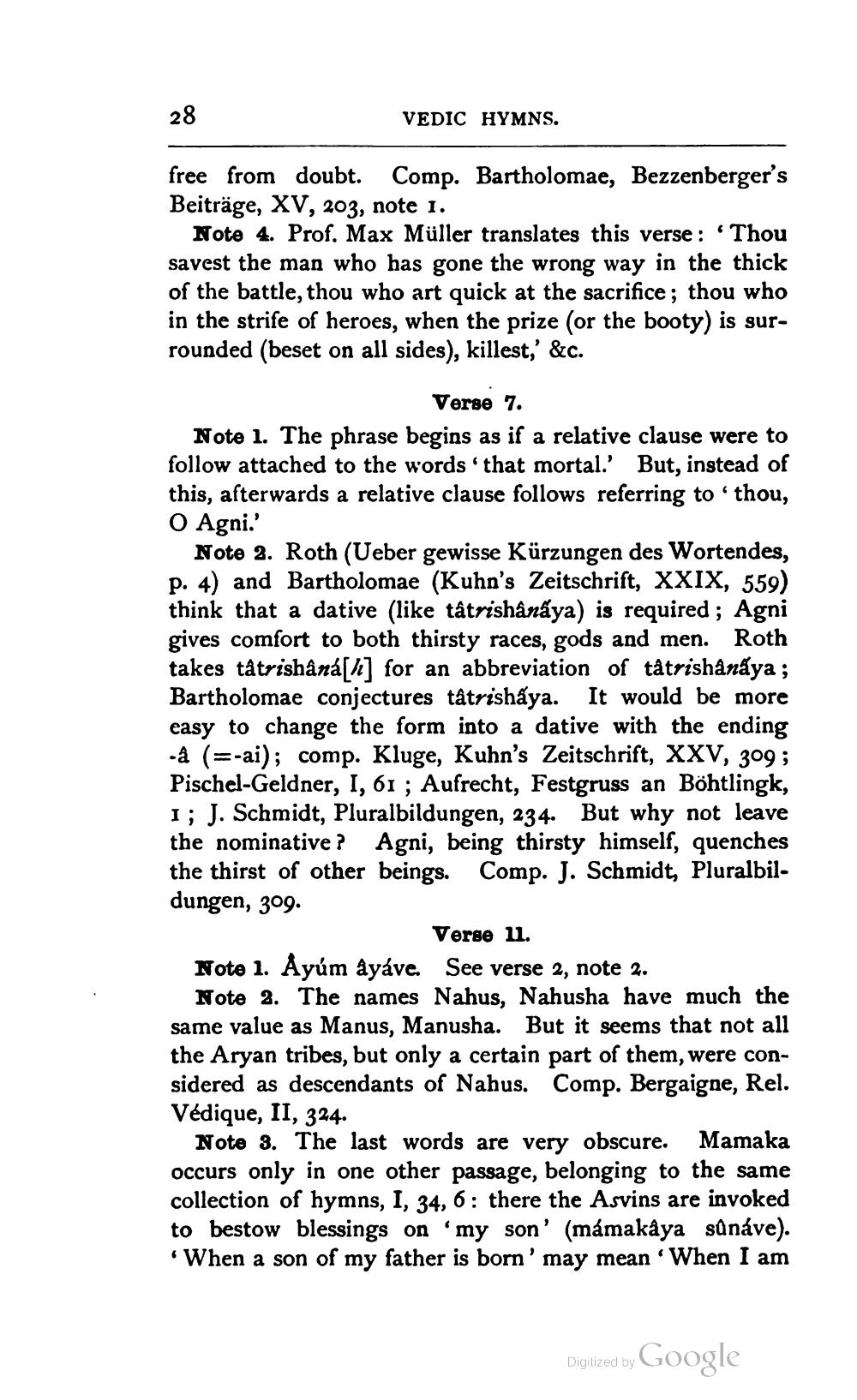________________
28
VEDIC HYMNS.
Comp. Bartholomae, Bezzenberger's
free from doubt. Beiträge, XV, 203, note 1.
Note 4. Prof. Max Müller translates this verse: Thou savest the man who has gone the wrong way in the thick of the battle, thou who art quick at the sacrifice; thou who in the strife of heroes, when the prize (or the booty) is surrounded (beset on all sides), killest,' &c.
Verse 7.
Note 1. The phrase begins as if a relative clause were to follow attached to the words 'that mortal.' But, instead of this, afterwards a relative clause follows referring to 'thou, O Agni.'
Roth
Note 2. Roth (Ueber gewisse Kürzungen des Wortendes, p. 4) and Bartholomae (Kuhn's Zeitschrift, XXIX, 559) think that a dative (like tâtrishânấya) is required; Agni gives comfort to both thirsty races, gods and men. takes tâtrishâná[] for an abbreviation of tâtrishanaya; Bartholomae conjectures tâtrishaya. It would be more easy to change the form into a dative with the ending -â (-ai); comp. Kluge, Kuhn's Zeitschrift, XXV, 309; Pischel-Geldner, I, 61; Aufrecht, Festgruss an Böhtlingk, 1; J. Schmidt, Pluralbildungen, 234. But why not leave the nominative? Agni, being thirsty himself, quenches the thirst of other beings. Comp. J. Schmidt, Pluralbildungen, 309.
Verse 11.
Note 1. Ayúm âyáve. See verse 2, note 2.
Note 2. The names Nahus, Nahusha have much the same value as Manus, Manusha. But it seems that not all
the Aryan tribes, but only a certain sidered as descendants of Nahus. Védique, II, 324.
Note 3. The last words are very obscure. Mamaka occurs only in one other passage, belonging to the same collection of hymns, I, 34, 6: there the Asvins are invoked to bestow blessings on my son' (mámakâya sûnáve). When a son of my father is born' may mean 'When I am
"
"
part of them, were conComp. Bergaigne, Rel.
Digitized by
Google




